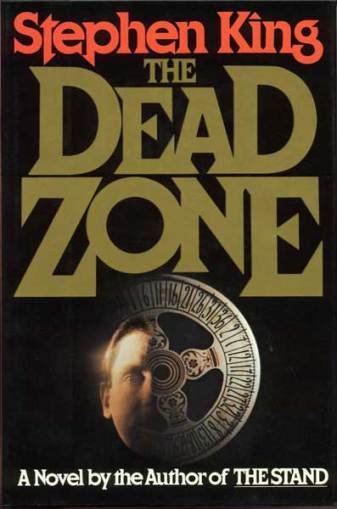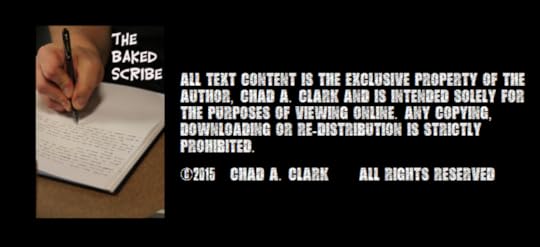Tracing The Trails Of The King : The Dead Zone
FAIR WARNING – if you have not read this book, there will likely be spoilers contained within this piece. This is the sixth essay in my ongoing series on Stephen King, and is intended to be a free discussion of the book. I cannot be held responsible if I inadvertently ruin the ending for you, so if you think this might apply to you, I would encourage you to turn back now.
.
.
“He does understand, Johnny thought, sipping his coffee. Whether he knows what went on between Sarah and me this afternoon, whether or not he suspects what might have gone on, he understands the basic cheat. You can’t change it or rectify it, the best you can do is to try to come to terms. This afternoon, she and I consummated a marriage that never was. And tonight he’s playing with his grandson.”
-Stephen King, The Dead Zone
.
.
I think that it’s interesting how many of King’s early books deal with characters with some kind of extra-sensory ability or telekinetic power. First we had Carrie, obviously. But Danny Torrence also had his ability to shine as well as some abilities of foresight. You could make the argument that Tom Cullen in The Stand had some kind of  psychic ability or maybe he was able to shine himself, albeit being manifested in a more simplistic fashion. And of course, immediately following the book featured in this review, we will get to Firestarter.
psychic ability or maybe he was able to shine himself, albeit being manifested in a more simplistic fashion. And of course, immediately following the book featured in this review, we will get to Firestarter.
That brings us to the character of the hour, Johnny Smith.. At the outset of the book, Johnny is in a severe car accident, following a night spent with a colleague that seems to be rapidly moving in the direction of serious romance. He ends up in a lengthy coma and when he comes to, he discovers that he has gained a new ability or, as the prologue of the story might imply, he has tapped into an ability that has laid dormant within him for some time. If he has some kind of physical contact with any person, he can see what will happen in their near or even distant future.
This is obviously setting up the story for a type of Cassandra complex situation, which is a narrative device I am a big fan of. Cassandra is a character from Greek mythology who was cursed with the ability to see the future but, whenever she tries to warn anyone about events, no one believes her. So she is left, perpetually seeing the future, without having the ability to do anything about it. It’s tragedy at its finest.
I read once that Stephen King stated that one of his motivations for this story was to try and create a situation where political assassination could be sympathetic. The idea had to be controversial at the time, I can’t even imagine what kind of storm of indignation it would cause now. Regardless, it is intriguing to me, and I am always going to be a fan of writers making decisions to try and look into the darker aspects of life, and bring it out in an attempt to make more sense of it.
I’d like to take a slight detour at this point and mention that another aspect which I really enjoy about this book is how King never really offers any solid explanation as to why Johnny comes out of his coma with this ability. It would be easy to dump a ton of exposition and pseudo-science into the book, which would give it more of an origin-story feel, but I often find that you end up wasting time in the book on something that isn’t really important. Do we really need to know that Johnny’s brush with death put him into contact with forces from the other side of the mortal vale, and when he returned, certain aspects returned with him? By the way, in case it wasn’t clear, what I just wrote was the height of bullshit, I have no idea what really happened to Johnny, I was just trying to make a point. Ultimately, in life, we often don’t get the easy and clean answers that we might seek, and I think it’s all right for our fiction to sometimes reflect that as well.
That aside, back to the actual book.
As with the story of Cassandra, there is an inherent tragedy to Johnny’s story that I have always loved. It is almost Shakespearean in it’s design and structure. It isn’t Johnny’s fault that he is in a car accident and he has no control over the abilities that he develops. When he is targeted by the tabloids and starts to realize that he is likely destined for a life of media scrutiny and exploitation, he accepts the necessity to stay out of public life and attempts to withdraw. He tries to reconnect with the woman who he had been on the verge of becoming intimate with, but during the course of his coma, she had made the decision to move on, to start a life without him. And while the two of them allow themselves a brief and special moment, they realize that their opportunity has passed them by. For them, the world has moved on.
So much change and loss in one person’s life. and none of it was his fault. All of it because he just happened to be coming home from the fair, on one particular night and, because he just happened to be in a particular car, driving down a particular road while, at the other end, another driver who just happened to be in his car was hurtling towards his fate as well. It’s ironic that it happens to be a book in which the main character can tell the future, that King would write such a fateful convergence of events that leads to Johnny’s accident, especially considering how King himself would nearly lose his life at the hands of an automobile collision in 1999.
In the end, and perhaps adding yet another layer of tragedy, Johnny’s sense of morality draws him out of seclusion to the aid of a nearby small town sheriff who is trying to solve a series of brutal killings. Johnny ends up in nearby Castle Rock, a locale which is very familiar for King fans and several characters from the Dead Zone appear in, or are referenced in future Castle Rock books. He is able to unveil the killer, and it is this act that likely puts him onto the long path which ends in him shaking the hand of politician, Greg Stillson.
Stillson has his own narrative arc in the story, one that runs concurrently to that of Johnny’s. It is a source of dramatic irony that as the reader, we are fully aware of Stillson’s less-than ethical aspects, his darker side. We know that he is destined for all the wrong things but unfortunately, in the scope of the story, the only other person who seems privy to this is Johnny himself, after he looks into Stillson’s future. We don’t get to know what exactly he sees in his vision at the time but, based on his reaction, it is clearly something horrific. And here, the moral dilemma of the story comes into play. If you found out that a politician was going to commit some horrible, unforgivable act, how far would you be willing to go in order to stop that? Would you be willing to kill one person to prevent the deaths of millions? At the time this book was written, the spectral image of the mushroom cloud was enough to strike fear in the hearts of many people. In that world, with that mindset, what would you do if you found out that a politician was going to be responsible for the next world war?
I think that what makes this book so effective is that Johnny is a genuinely likable character. You want to be like Johnny, you want to be friends with Johnny. So when he starts to contemplate an unthinkable act, you are put into a position of having to forgive him because you know how much of a good person he is, and how much sympathy he deserves for the situation he has been thrust in to. You just want everything to turn out all right for Johnny, for him to get some kind of relief from this shitty hand he has been dealt.
Ultimately though, King’s characters rarely seem to find this, and things don’t really end up going well for Johnny either.
I think that most of us, at some point, have had the hypothetical conversations, if you could have a super power, what would yours be? I think that with books like this, or Carrie or The Shining, King offers a possible glimpse into what life might actually be like for someone who possessed an extra-ordinary ability of some kind. As children, we see these powers as making our lives easier, but for these characters it seems anything but. Life for them seems to be a constant struggle, as they attempt to come to terms with themselves, and how the rest of the world deals with them. They all seem to have to deal with that moment where people start seeing them as “something else”, someone to be either feared or revered, but not treated as simply another person.
The Dead Zone is a book built on a solid premise. It takes a very sweet, and sympathetic character and thrusts him into a life of darkness and despair. And despite it all, the book still manages to send you off with at least a few glimpses of light and possibility. I find no small irony in the fact that the former potential love interest, the character who spends the least amount of time with Johnny following his coma, is the one who is able to find the most sense of personal closure by the end of the book.
This story was brilliantly conceived and executed. It was right around this time, in my quest through King’s library that I started to feel that glimmer of fan-boy again, that love for his writing that I had once had and let slip through my fingers. It made me more excited for this project than I had ever been.
The books are amazing and I will always be grateful that they are there for us all to enjoy.
My name is Chad Clark, and I am proud to be a Constant Reader.
.
.

.
.
.
.






